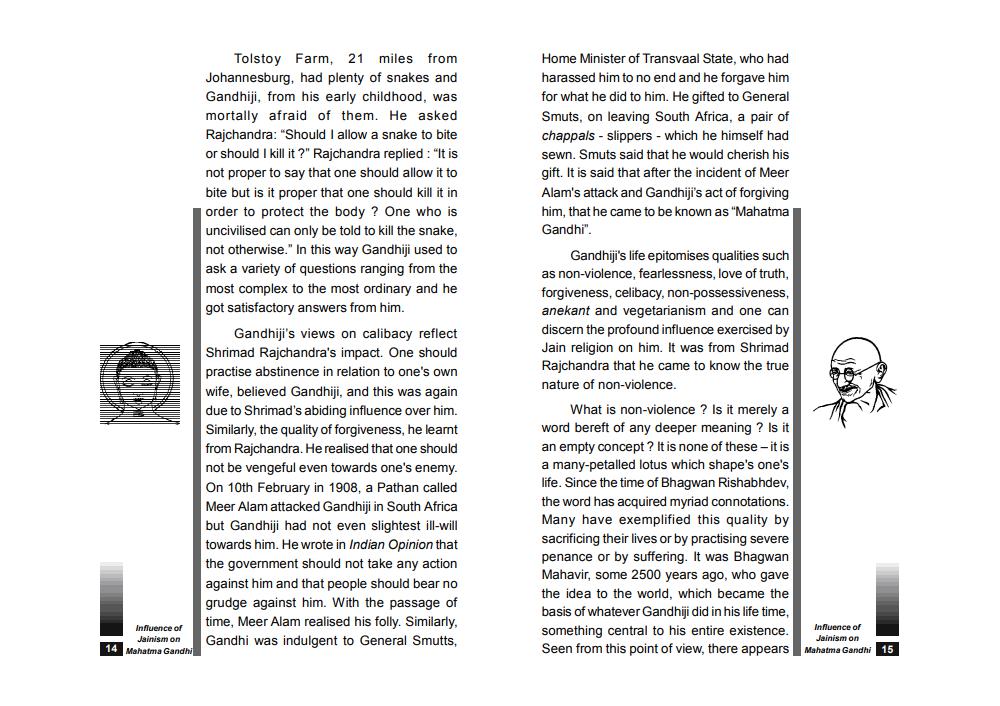Book Title: Influence Of Jainism On Mahatma Gandhi Author(s): Kumarpal Desai Publisher: Jaibhikkhu Sahitya Trust View full book textPage 9
________________ Home Minister of Transvaal State, who had harassed him to no end and he forgave him for what he did to him. He gifted to General Smuts, on leaving South Africa, a pair of chappals - Slippers - which he himself had sewn. Smuts said that he would cherish his gift. It is said that after the incident of Meer Alam's attack and Gandhiji's act of forgiving him, that he came to be known as "Mahatma Gandhi". Tolstoy Farm, 21 miles from Johannesburg, had plenty of snakes and Gandhiji, from his early childhood, was mortally afraid of them. He asked Rajchandra: "Should I allow a snake to bite or should I kill it?" Rajchandra replied: "It is not proper to say that one should allow it to bite but is it proper that one should kill it in order to protect the body ? One who is uncivilised can only be told to kill the snake, not otherwise." In this way Gandhiji used to ask a variety of questions ranging from the most complex to the most ordinary and he got satisfactory answers from him. Gandhiji's views on calibacy reflect Shrimad Rajchandra's impact. One should practise abstinence in relation to one's own wife, believed Gandhiji, and this was again due to Shrimad's abiding influence over him. Similarly, the quality of forgiveness, he learnt from Rajchandra. He realised that one should not be vengeful even towards one's enemy. On 10th February in 1908, a Pathan called Meer Alam attacked Gandhiji in South Africa but Gandhiji had not even slightest ill-will towards him. He wrote in Indian Opinion that the government should not take any action against him and that people should bear no grudge against him. With the passage of time, Meer Alam realised his folly. Similarly, Gandhi was indulgent to General Smutts, Gandhiji's life epitomises qualities such as non-violence, fearlessness, love of truth, forgiveness, celibacy, non-possessiveness, anekant and vegetarianism and one can discern the profound influence exercised by Jain religion on him. It was from Shrimad Rajchandra that he came to know the true nature of non-violence. What is non-violence ? Is it merely a word bereft of any deeper meaning ? Is it an empty concept? It is none of these it is a many-petalled lotus which shape's one's life. Since the time of Bhagwan Rishabhdev, the word has acquired myriad connotations. Many have exemplified this quality by sacrificing their lives or by practising severe penance or by suffering. It was Bhagwan Mahavir, some 2500 years ago, who gave the idea to the world, which became the basis of whatever Gandhiji did in his life time, something central to his entire existence. Seen from this point of view, there appears Influence of Jainism on 14 Mahatma Gandhi Influence of Jainism on Mahatma Gandhi 15Page Navigation
1 ... 7 8 9 10 11 12 13 14 15 16 17 18
